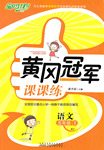题目内容
I think we should ________all the toys to the local children hospital where the children are badly in need of them.
A. give away B. give out C. give up D. give in
A
【解析】
试题分析:考查动词短语辨析。A. 捐赠;B. 耗尽;C. 放弃;D. 屈服;句意:我认为我们应该把所有的玩具捐赠给当地的儿童医院,那里的孩子更需要他们。故选A。
考点:考查动词短语辨析

练习册系列答案
 黄冈冠军课课练系列答案
黄冈冠军课课练系列答案
相关题目